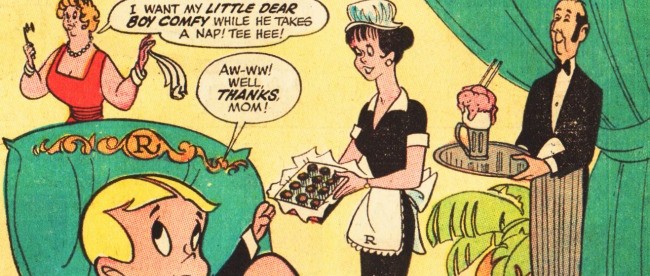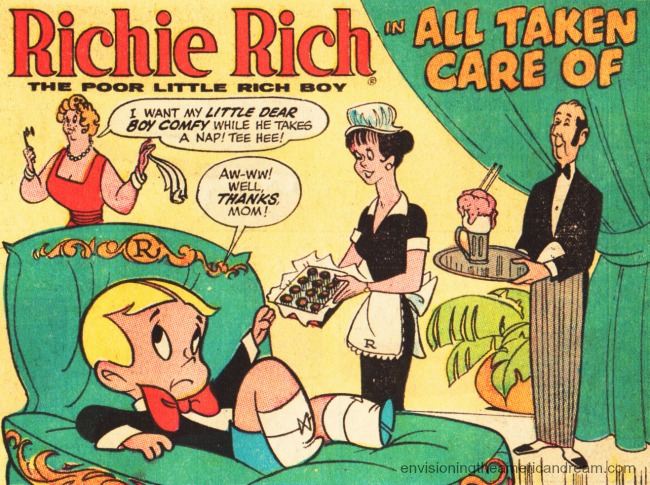Helping the Rich Get Over Being Rich


The “affluenza” is a combination of “affluent” (that is, being rich) and “influenza” (the flu), and, per Wikipedia, can be described as having so much money that he or she suffers from anxiety or other painful emotional/psychological troubles. The term won’t be found in most dictionaries, but has made the news in recent years when a teen, driving drunk, killed four people but initially avoided jail time when the judge accepted his parents’ wealth as a mitigating factor. Apparently, he was simply too rich to understand right from wrong.
In this case, it’s easy to dismiss affluenza as a “first-world problem” — the term is typically used as a not-so-subtle way to comment on the absurdity of being too rich for one’s own good. It’s not a DSM-listed disorder, of course, and to many therefore not something deserving further investigation. But an absurd excuse for vehicular manslaughter aside, those with extraordinary wealth can suffer anxiety from their situation just like anyone else. And those suffering, regardless of the reason, are usually worth helping. That requires helpers. In this case, those are “wealth psychologists.”
And you get them at the bank.
Investopedia defines a “wealth psychologist” as “a mental health professional who specializes in issues relating specifically to wealthy individuals.” These psychologists “help their ultra-rich clients deal with issues such as the guilt they feel about being wealthy, or advise on inheritance issues and counsel parents on how to raise children who are not spoiled by money.” In 2015, a wealth psychologist aptly named Jamie Traeger-Muney told the Independent that while most of her clients “feel lucky and privileged,” they still have anxiety over the size of their bank accounts — especially when she’s talking about those who inherited their wealth and don’t want others to know. Other wealth psychologists, per the Independent, cite their clients’ feelings of guilt, isolation, and malaise — all “caused” by the money. In any event, one can see how having too much of a good thing — of every good thing — may be an actual problem.
So, some seek help. Or, rather, help seeks them. If you’re concerned that you’re suffering from the psychological aftershocks of being too rich and you want to get help, there’s good news: your bank will make sure of that. Per Mother Jones, in 2006, investment bank Wells Fargo hired Traeger-Muney to assist its clients with assets exceeding $50 million. Given the fees generated by those clients’ investments, consider it an investment in the bank’s own well-being, but it’s more than that. After the 2008 economic crash, the agony of still having money was too much for many to handle, and, per Mother Jones, clients wanted financial advisors who could empathize with their pain. Bank-offered counseling has become a trend since; many other top Wall Street banks have hired similar service providers to help their clients feel better about being so rich, too.
Of course, wealth therapy isn’t for everyone — you have to be really, really rich, if only to afford the fees, unless the bank is footing the bill. And in some cases, a few months of therapy can run tens of thousands of dollars, so if you’re not rich enough, the therapy will certainly make you feel better about having too much money — by making you no longer have all that much.
Bonus fact: While the clients of wealth psychologists are often those who are born into wealth but want to keep it to themselves, others flaunt it. And sometimes, that’s a big problem for their parents. As the Guardian reported, some of these “self-styled rich kids of Instagram “are posting pictures of themselves living it up, but often, in ways their parents would rather not the world know about because it isn’t on the up-and-up. The photos, per the Guardian, end up “revealing their parents’ hidden assets and covert business dealings” or “providing evidence for investigators to freeze or seize assets.”
From the Archives: iRich: The iPhone app for the person who has everything.
Take the Quiz: Match the anagram of the rich person’s name to their actual name.
Related: $100 for $9.95. Yes, there’s a catch.
